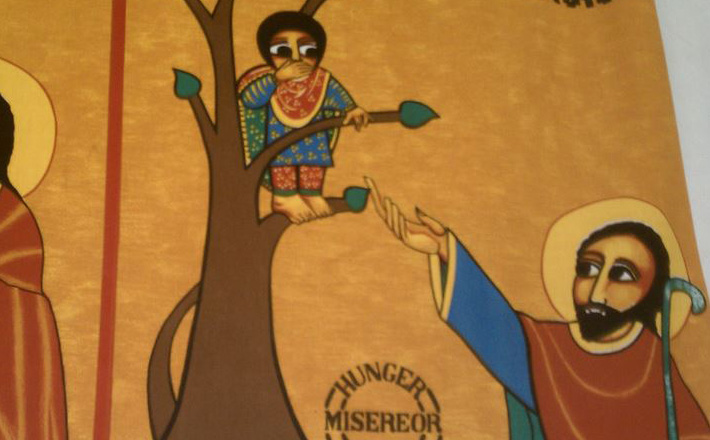Commentary on Isaiah 1:10-18
Scandals: they are part of human experience, and, unfortunately, churches are not immune to them.
When scandal rocks a faith community, it seems to hit harder than the misbehavior of politicians or celebrities. Betrayal of trust cuts deeper, and the residual anger radiates through the whole community. We tend to define scandal in sexual terms, but it is also a scandal when a church fails to recognize the suffering within it. It becomes difficult to worship in a place where trust has broken down.
Sometimes we assume that scandals are a feature of the modern church, but there are many passages in the Bible that give vent to anger and distrust. Isaiah 1:10-18 is one such passage. The temptation when encountering the anger in these verses is to deflect that anger onto something that confirms what we already believe, rather than to listen to the challenge that it offers.
In this passage from Isaiah, the angry voice is that of God. The passage has a clear outline. It is divine speech addressed to the leaders of the Israelites who are called “the magistrates of Sodom” (verse 10). Although this poem is placed near the beginning of the book, most scholars view it as part of the last layer of the text. It would reflect a time, after the Exile, when Judea was no longer ruled by Davidic kings. The use of the word “magistrates” reflects the absence of a king.
During this period when the temple was rebuilt and Judean society restored, many groups vied for positions of power. Within the Persian context, the temple would have been the single most important social institution, both economically and politically, so control of the temple was more than just a religious issue.
The bulk of the speech in verses 11-16 is unrelenting in its vitriol against the rituals that take place in the temple. God “hates” religious festivals, sacrificial offerings, even the Sabbath. The specific images used in verses 11-13 describe the breadth of Israel’s worshipping life. Qualifiers do not mitigate the condemnation of their liturgy.
The passage ends with a plea that the leaders show regard for the most vulnerable members of their community (in the NRSV, the oppressed, the widows and orphans) and an offer of forgiveness if they allow themselves to be judged. The text leaves the reader to ponder the relationship between temple worship, righteous behavior, and divine forgiveness.
Within the Christian tradition, three interpretive moves can be found that do not do full justice to the meaning of the ancient text. Two traditions can be easily dismissed.
- Sometimes the passage has been read as condemnation Jewish religious practices. This is aggravated when New Testament texts like Galatians 3:11 (“No one is justified before God by the law”) are also read as a condemnation of Judaism.
- Critiques of temple piety found here and in Amos 5:21-23 have also been sometimes levied against Catholic practices in parts of the Protestant tradition. The notion that one must attend Sunday Mass, for example, in order to be saved seems to stand in direct conflict with a passage that states worship practices are hateful to God.
Both of these readings miss the ancient context for Isaiah’s oracle. When this passage is read within a contemporary faith community, it should be read as a challenge of our own worship practices, and not somebody else’s.
As a poetic oracle, Isaiah 1:10-18 is should provoke a reaction through its use of provocative and sometimes shocking images. In this passage, God’s complete rejection of a temple worship whose basis is found in divinely revealed law in the Pentateuch is shocking. It should jar us. It should make us question the ultimate purpose of our own liturgical lives.
A third misreading of the text is one that moves too quickly away from worship and focuses exclusively on verse 17’s definition of the moral life. This misreading often relegates worship to a back seat. Righteousness is determined by acts of social justice, while worship becomes either self-serving pageantry or trivial passivity.
While this text does liken justice to the treatment of the oppressed and marginalized, the conclusion that social justice replaces liturgy is incorrect, especially in light of the whole book of Isaiah. Positive images of God’s relationship to the temple permeate the book. Isaiah’s call in chapter 6 takes place in the temple. Yahweh saves Jerusalem in Isaiah 36 when King Hezekiah prays in the temple. In a stunning image of inclusivity, the marginalized foreigners and castrated become fully integrated into the community by their inclusion in worship (56:3-8). The book ends with a vision of restoration that likens salvation with temple worship (66:23). Isaiah does not say liturgy is evil, unnecessary, or insignificant.
Instead, the passage invites us to experience liturgy through the eyes of those we have oppressed, ignored, or abandoned. What do our hymns sound like to someone who lives on the brink of destitution? Do our prayers evoke anger in the woman who can barely feed her children in the week between our services? Does the hope that we preach sound hollow to a child who does not feel safe in her own neighborhood or his own home?
God speaks what we refuse to hear. God’s anger is the anger of those we fail to see. Yahweh calls us out on our lack of activism for the oppressed and our failure to find relief for the oppressed. God tells us that if we allow ourselves to be judged, to recognize that we have not defended vulnerable children nor spoken for powerless women, then worship can be turned into what it is meant to be: a place where our sins are washed away and we become white as snow.


November 3, 2013